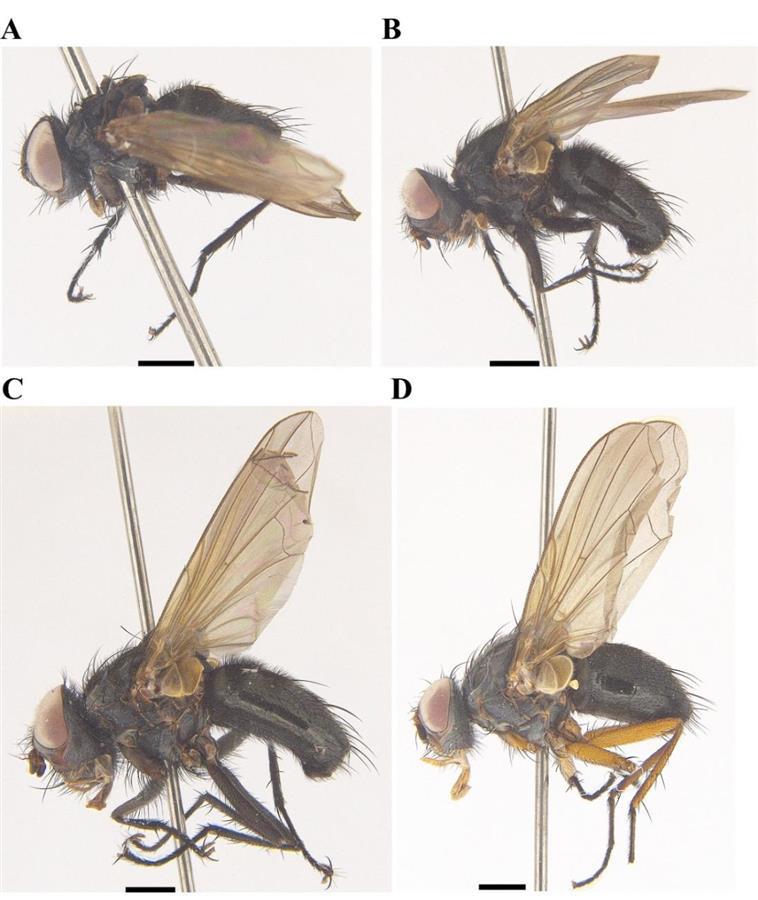Four new species of tachinid flies discovered in Yichang
Chinese scientists have discovered four new species of insects – tachinid flies – in Dalaoling National Nature Reserve, Yichang, Hubei province.
The discovery of these four new insect species is a world first.
The scientists involved – a team from Beijing Forestry University led by Professor Zhang Dong and scientists from the Yichang Three Gorges Dalaoling Nature Reserve Administration – jointly published a research paper entitled "Four New Species of Macquartia (Diptera: Oestroidea) from China and Phylogenetic Implications of Tachinidae" in the internationally renowned entomology journal “Insects” on Nov 28.
Many Tachinids are natural enemies of major insect pests, and some species are used in biological pest control. On the other hand, some tachinid flies that prey on useful insects are themselves considered as pests. One notorious silkworm pest is the Uzi fly.
The four new species of Tachinid fly are M. brunneisquama sp. nov., M. chinensis sp. nov., M. flavifemorata sp. nov. and M. flavipedicel sp., which belong to the Macquartia genus of the Tachinid family.
The discoveries will further swell the known number of Tachinid species, which currently stands at around 8200.
The researchers discovered these four new species through long-term insect diversity monitoring in field habitats using a malaise trap, and recorded molecular mitochondrial genomic and morphological data.
In biology, a phylum is a group of organisms that have evolutionary links or morphological similarities.
Tachinids are the largest group of parasites in the insect phylum Hymenoptera, and are a key group at the top of the ecosystem. The Macquartia genus, one of the oldest evolutionary lineages of the Tachinids, attack the larvae of leaf beetle insects.
The Hubei Dalaoling National Nature Reserve is located at the head of the Three Gorges Dam reservoir, with 98% forest coverage and rich plant and animal resources. Dalaoling works with various research institutes on scientific research and monitoring, and is committed to the protection of biological resources.
The discovery of these four new insect species is of great scientific value for conservation and evolutionary biology research, and is testament to the efforts of the Dalaoling Nature Reserve to maintain the diversity, stability and sustainability of the natural world.

A. M. brunneisquama sp. nov. (Zhang & Li, 2022)
B. M. chinensis sp. nov. (Zhang & Li, 2022)
C. M. flavifemorata sp. nov. (Zhang & Li, 2022)
D. M. flavipedicel sp. (Zhang & Li, 2022)






